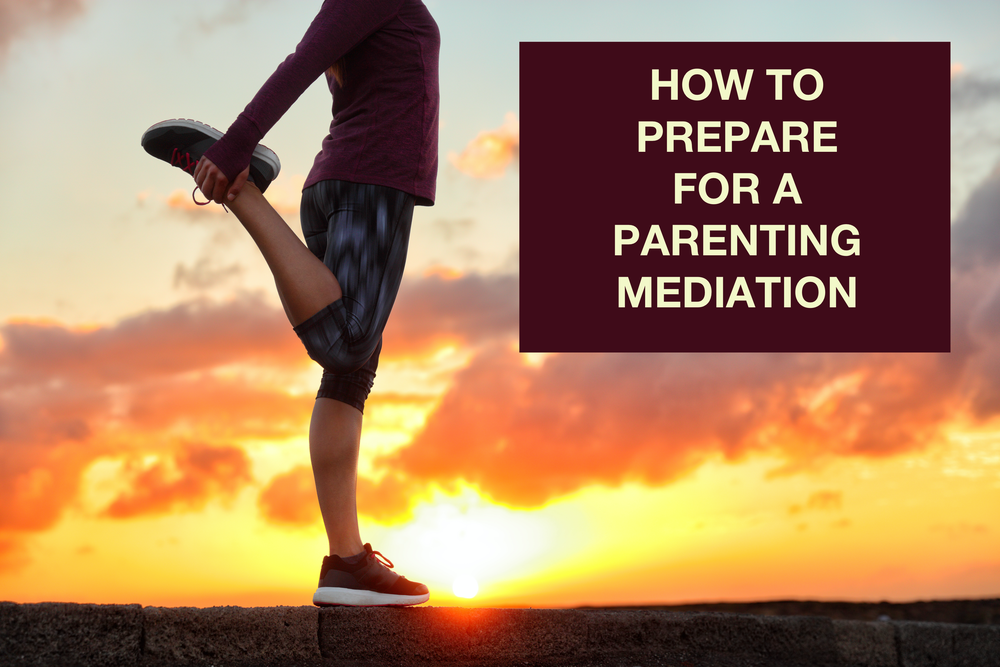Feeling nervous about a parenting mediation? Not sure what you need to do to prepare? Here are some tips for getting yourself ready.
Look at the big picture for a moment
A good place to start when you are preparing for a mediation about children (often called a custody mediation) is to think about what you’re hoping to achieve by coming to mediation.
It might be that you’re hoping to reach agreement with the other parent about an issue that has been in dispute. You might be wanting to change existing care arrangements or come up with a plan for your children’s living arrangements after a decision to separate. Maybe you’re hoping to find ways to communicate more effectively. Or perhaps you’re looking ahead and wanting to make sure you’re on the same page about issues that may cause conflict in the future if you don’t talk about them now. If you’re coming to mediation because your co-parent asked you to, it might be as simple as knowing what it is they want to talk about.
Knowing why you’re investing the time and money in attending a mediation can help you make the most out of that investment.
Work out what you want to talk about
It might seem obvious, but it is worth taking a moment to jot down the topics you think need to be talked about in mediation. It might be there is just one – or it could be there are many. If there is more than one topic do a bit of extra thinking about priority. Which are the topics that require an urgent decision? Which are the most important? Which are the ones that you think will be the trickiest to talk about?
Early in the mediation the mediator will be creating an agenda of topics (based on what you and the other person have raised) and helping the two of you decide where to start the discussion. Thinking about your topics ahead of time will ensure you raise the topics that matter most.
Think about your reasons
Often people come into a ‘custody mediation’ with a very fixed idea of what they want the other person to agree to. They might be determined to achieve a week on / week off care arrangement. Or they might be set on their child attending one particular school. It seems to them that this is the only acceptable outcome.
But the reality is that there are often other possibilities that will serve their interests just as well. Finding those other possibilities is often the key to reaching agreement and the first step to finding those possibilities is working out what your reasons are. Why do you think that particular school is best for your child? How do you think a week on / week off care arrangement will benefit your child? What are you worried will happen if the outcome you’re proposing doesn’t happen?
Learn about the alternative to a mediated agreement
If you’re coming to mediation to try and resolve a disagreement then it is important to remember that not all disagreements about children can be resolved in a parenting mediation. Sometimes a Judge needs to make a decision. But Court is a difficult, slow and expensive process so you don’t want to be saying ‘let the Judge decide’ unless you’re sure that’s the best option.
It is important to know where your bottom line is – to know when it would be best to agree to something (even if you think it is less than optimum) and when it would be best to say ‘no thank you’. It is a good idea to get some legal advice because it will be easier to work out where your bottom line should be if you know what a Court would be likely to decide, how much litigation would cost and how long it would take.
Start letting go of the need to prove you are right
People sometimes come into a mediation desperate to prove they are right, to out-argue the other person and to convince the neutral third party mediator to side with them. But you don’t need to do any of these things in a mediation, and trying to do them will likely do more harm than good.
The goal in a mediation is to have the other person hear and understand your perspective. They don’t have to agree with your perspective to take it into account in their decision-making. And they don’t have to say your perspective is right to entertain options for resolution that accomodate your views. People in conflict don’t find it easy to say the other person is right, so if that is your focus it will be harder to find a mutually acceptable solution.
And trying to prove your ‘rightness’ to the mediator won’t be helpful either. A mediator isn’t a decision-maker like a judge so trying to get them on side is, to put it bluntly, a waste of your time. And it might even undermine the process because a mediator’s impartiality is central to a mediation’s success. If the other person thinks the mediator might have been swayed by your attempts to get them on side (even if it hasn’t worked) it will make it harder for the other person to hear and understand your perspective.
So – when you find yourself pondering how to prove things to the other person (or the mediator), change the question a little and ask yourself ‘How can I help them understand what I think?’
Set your day up right
Most mediations involve difficult conversations. You can make this easier by planning the time either side of your mediation appointments.
Try to set aside some time in the hour or two before the mediation to do an activity that you know will help you feel calm. Go for a walk, or a workout at the gym. Read a book. Have a cuppa with a friend who knows what’s going on (but who isn’t too invested in the outcome).
If you can, carve out some time after the mediation too. Difficult conversations are hard work so you’ll be tired, and the conversation might have stirred up emotion. Having room in your day to let off some steam or cry on a friend’s shoulder will give you a chance to re-charge before you launch back into a work day or caring for your children.
Preparing for a parenting mediation (which you might call a custody mediation) is all about thinking about what you’re there for and setting things up so you can come in with the right mindset. If you’re looking for a mediator who will help you make the most of your preparation, just get in touch.




